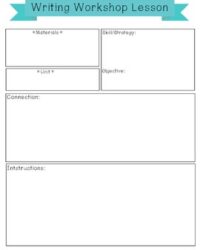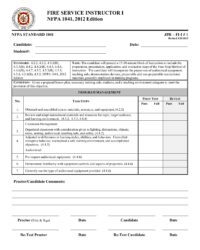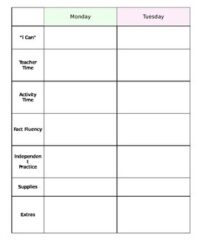So, you’re embarking on the exciting journey of facilitating a writing workshop. Whether you’re a seasoned educator or a budding instructor, the thought of guiding aspiring writers through the creative process can be both inspiring and a little daunting. How do you ensure every session is productive, engaging, and moves your students closer to their writing goals? The key often lies in thoughtful preparation, which can feel like a considerable task in itself.
This is where a well-crafted writing workshop lesson plan template becomes an invaluable asset. It’s not just about jotting down notes; it’s about creating a structured framework that supports both your teaching and your participants’ learning journey. A template provides consistency, ensures all essential components are covered, and frees up your mental energy to focus on the dynamic needs of your learners rather than scrambling for what comes next. Let’s dive into how you can make the most of this powerful organizational tool.
Deconstructing the Writing Workshop: Essential Components
Before we build the perfect template, it’s crucial to understand the anatomy of a truly effective writing workshop. Imagine it as a well-oiled machine, each part contributing to the overall flow and success. At its core, a writing workshop is a student-centered approach designed to immerse participants in the practices of real writers. It typically follows a predictable structure, allowing learners to internalize routines and focus their energy on writing itself.
The session often kicks off with a "mini-lesson," a brief, focused instruction on a specific writing craft or strategy. This isn’t a long lecture; rather, it’s a targeted teaching moment designed to address a common writing challenge or introduce a new technique. It might involve a quick mentor text example, a shared writing exercise, or a clear explanation of a concept like "show, don’t tell" or developing compelling characters. The goal is to provide a single, actionable takeaway that writers can apply immediately.
Following the mini-lesson, the bulk of the workshop is dedicated to "independent writing time." This is where the magic truly happens. Participants apply what they’ve learned, develop their own projects, and grapple with the creative process. During this period, the instructor circulates, offering individualized support through one-on-one conferences. These conferences are invaluable, providing tailored feedback, asking probing questions, and helping writers overcome specific hurdles in their current drafts. It’s a time for personalized coaching and fostering a strong writer-teacher connection.
Finally, the workshop typically concludes with a "sharing and reflection" segment. This might involve a few participants reading a small portion of their work aloud, sharing a breakthrough, or discussing a challenge they faced. It’s a chance to build community, celebrate progress, and learn from each other’s experiences. This often sparks new ideas and reinforces the lessons learned, creating a powerful feedback loop within the group.
Key Elements of a Successful Workshop Flow
- **Mini-Lesson:** Short, focused instruction on a specific writing skill or strategy.
- **Independent Writing:** Extended time for participants to apply learned concepts to their own writing projects.
- **Conferences:** Individualized feedback and support from the instructor during independent writing time.
- **Sharing/Reflection:** Opportunity for participants to share work, discuss progress, and learn from peers.
- **Clear Learning Objective:** A defined goal for what participants should understand or be able to do by the end of the session.
Designing Your Own Powerful Writing Workshop Lesson Plan Template
Now that we understand the core components, let’s talk about creating a writing workshop lesson plan template that truly serves your needs. Having a readily available writing workshop lesson plan template isn’t about rigid adherence; it’s about providing a flexible blueprint that ensures you hit all the necessary marks while leaving room for spontaneous teachable moments. Think of it as your reliable co-pilot, keeping you on course even when the creative winds shift.
A robust template should include sections for essential information that will streamline your planning and delivery. This means clearly outlining your learning objectives, gathering necessary materials, detailing the step-by-step procedures for each workshop segment, and considering how you’ll differentiate instruction for diverse learners. It should also prompt you to think about how you’ll assess learning, whether informally through observation and conferences, or more formally through project submission. The more detailed your template, the less you’ll have to think about on the fly.
Beyond just the structure, a great template encourages foresight. It prompts you to brainstorm potential student challenges, pre-plan specific examples or mentor texts, and even consider alternative activities if a particular approach isn’t resonating. The beauty of a customized template is that it evolves with you; after each workshop, you can make notes on what worked well, what could be improved, and add those insights directly into your template for future use.
Essential Sections for Your Template
- **Workshop Title & Date:** For easy organization.
- **Learning Objectives:** What specific skill or concept will participants master?
- **Materials Needed:** List of handouts, mentor texts, technology, etc.
- **Mini-Lesson Details:** Topic, key teaching points, examples to use, time allocation.
- **Independent Writing Focus:** What should participants be working on?
- **Conference Strategy:** Who will you meet with? What key questions will you ask?
- **Sharing/Wrap-Up Plan:** How will the session conclude? Who will share?
- **Differentiation/Modifications:** How will you support struggling writers or challenge advanced ones?
- **Assessment Notes:** How will you gauge participant learning and progress?
- **Reflection/Notes for Next Time:** A space to jot down immediate takeaways after the session.
Embracing the structure a good lesson plan provides will transform your workshop experience, making it more organized for you and more impactful for your participants. You’ll find yourself more present, able to truly listen and respond to the nuances of your writers’ needs, rather than constantly checking your notes. This allows for a truly dynamic and responsive teaching environment.
Ultimately, by investing time in creating and utilizing a solid plan, you’re investing in the growth and confidence of every writer who walks through your (virtual or physical) workshop door. The rewards—witnessing breakthroughs, fostering creativity, and building a vibrant writing community—are immeasurable and deeply satisfying.


